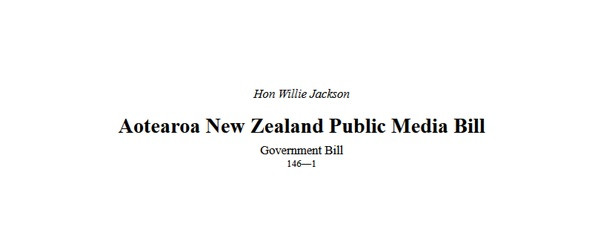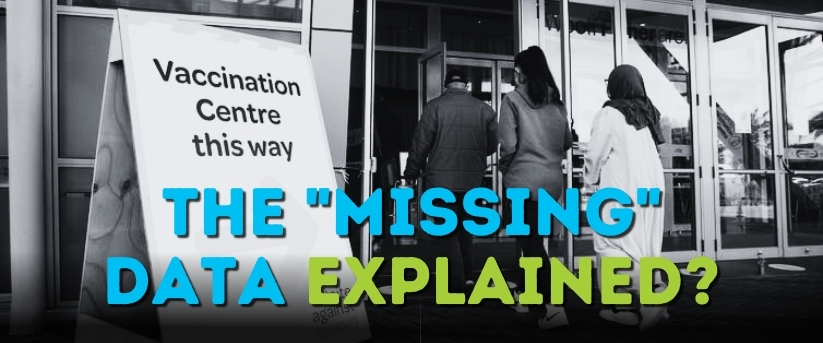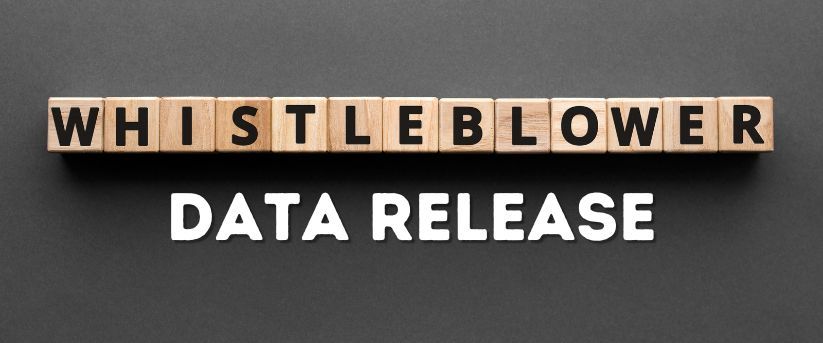
Submissions On Public Media Bill
Submissions on the Aotearoa New Zealand Public Media Bill
8 September 2022
Voices for Freedom opposes the Aotearoa New Zealand Public Media Bill.
ABOUT VOICES FOR FREEDOM
Voices for Freedom (VFF) is a grassroots, not-for-profit, community advocacy organisation. It is focused on raising awareness of the human issues associated with the Government’s response to Covid-19 and other matters impacting the rights and freedoms of New Zealanders.
VFF was founded by three Kiwi mums; passionate women with professional backgrounds in law and education as well as running online communities in the health, wellbeing, and arts arenas.
Our audience exceeds 100,000 supporters spread throughout the country with over 40,000 members active and engaged in local community groups. Our supporters are diverse in nature and span all ages, ethnicities, socio-economic groups, religious and political beliefs, and abilities.
We advocate for the open discussion and debate of important issues, information, research, and data affecting New Zealanders, particularly as a result of the Government’s response to Covid-19 including their public messaging, unethical and coercive policies, and rushed legislation.
When tens of thousands of upstanding Kiwis were forced out of their jobs, homes, and lives as a result of Government policy, VFF was there to support them with resources, advice, and supportive community networks. We cared at a time when the Government and media turned their backs, instead using their power to encourage and create a two-tier society in New Zealand.
Media – The Fourth Estate
The media, as the fourth estate, is a term used to emphasise the independence of the press and the profession of journalism. At its heart is independence, freedom of speech and freedom of press. What is proposed by the Bill, which is the merger of RNZ and TVNZ into one Crown entity is none other than the ‘fourth branch’ – another arm, or extension, of government. We need only refer to the last century for the effects of government controlled media, alternatively, for something more current: communist China. History should not be forgotten or ignored.
What is proposed by the Bill is in no way meant to benefit the people of New Zealand, who as a consequence, will be paying for the monopolised media, as it will not keep the government in check as media is intended in a free and democratic society (which New Zealand has prided itself on).
Democracy hinges on an active fourth estate that can critically examine and challenge power. In order for a public sector fourth estate to carry out such duties, the statutory obligations must include overarching principles that support such activity.
The question is, can the shift proposed by the Bill, ensure that New Zealand’s public media serve the democratic – the national – interest? Will it be a place that promotes controversial, and challenging content that enables society to challenge over-reach from the private sector, so as to protect not only democracy, but ensure a free and fair society and the protection of human rights – and our health?
What we take from the objects of this proposed legislation is that it must be representative of our broad culture, and in particular serve Māori (16% of the population) – but it really only needs to be nice and interesting.
There is no teeth. No grit. No substance. There is no specification to ‘serve the public interest’ – the public interest forever, has been the focus of our democracy and court action, we have precedents in law which help us judge what the public interest is and what is in the public interest.
What we see is an end product that is designed to primarily be apolitical entertainment and messaging vehicle that also discusses history (perhaps selectively or recreatively).
Our greatest concern is that the Bill takes important principles, that were previously held at the highest level in the Radio New Zealand Act and demotes them to the bottom of the Bill.
The Objectives
Section 11 of the proposed Bill outlines the objectives, two of which are entirely inconsistent:
(k) foster critical thought, counter misinformation, and promote informed and many-sided debate:
(l) support freedom of thought and expression
The term misinformation reached fever pitch during the 2020 Covid-19 pandemic.
Misinformation means incorrect or misleading information.
Too regularly over the last two and a half years, the term ‘misinformation’ has been used to label information that people do not want to engage with or do not consider an alternative perspective worthy of consideration or discussion. It has otherwise been used as an allegation or response to dismiss the statement and not engage at all.
More concerning, this term has been once widely used by the government and its officials, the very same government that has defined itself as “the one source of truth”.
Freedom of thought (both critical and otherwise) and expression is the right to share thoughts and information, the right to engage on topics that interest us or are important. Freedom of thought is supposedly to be codified in both sub-sections 11 (k) and (l) of the Bill – yet how will freedom of thought be encouraged, respected and appreciated where the very government, for whom media (as the fourth estate) is to keep in check, will own the very entity that is to keep the government honest.
Over the last couple of years, we have all been witness to the effect of the mainstream media having access to the government slush fund of $55 million. This has eroded confidence in the large majority of the population who no longer have faith or respect for the mainstream media. How will this new monopoly improve upon the already woeful situation government involvement in media creates?
Functions and the Charter
The Functions set out at section 12 are to inform, enlighten, and entertain. Readily available, free or cheap paid on-demand subscriptions such as Netflix, Amazon, Neon, et al, are doing this with the benefit to the consumer in that they are not government sanctioned or subsidised.
While the Charter promotes ‘editorial independence’ – this must be in relation to the objectives and functions – as stated. So how can we have any hope that an editor (government employee) will challenge power in such a way that might be politically controversial.
Issues with the proposal of this Bill
Ordinarily, the Bills Digest, would contain the underpinning information, analysis and legal discussions – there is nothing. How, as informed citizens in a democracy, can we readily be able to comment or submit upon the proposed Bill when key and relevant information is missing.
Cost
Before the 2022 budget, making the business case for this Bill – with its numerous consultants and working groups – cost the taxpayers close to $20 million. This, at a time when New Zealanders are facing an unprecedented increase in the cost of living, inflation is rife, and people are fearful and scared.
Such money could be better utilised in supporting its citizens (for example, reducing taxes) so they have more disposable income to feed and clothe their families, meet the cost of housing and cope with inflation.
The government’s spending during its current tenure, but particularly during the pandemic, has been unbridled.
With the cost of disbanding both media outlets and the subsequent merger estimated at $400 million. We implore you to ask your constituents and people on the street: would you prefer to see $400 million put towards helping you feed and clothe your family, or would you prefer it be spent on our new mouth piece? The answer will not surprise you.
One Crown entity
We concur with the comments of Damian Smith and Joseph Mooney (National—Southland) on 30 June 2022:
https://www.parliament.nz/en/pb/hansard-debates/rhr/combined/HansDeb_20220630_20220630_28
We thank you for the opportunity to make submissions on this Bill.
We would be prepared to be heard.
Voices For Freedom
Claire, Libby and Alia
Voices For Freedom would like to acknowledge Jodie Bruning and her recent substack article as a source of information that helped contribute to our submission.
https://jrbruning.substack.com/p/my-submission-to-the-aotearoa-new
Thanks for reading and sharing! Remember to sign up to our mailing list to keep up with the latest news.
If you value what we are up to at Voices and would like to support our ongoing work you can donate to us and support our nationwide public education campaigns (webinars, flyers, billboards...) and other initiatives to speak up and push back for your freedoms.




